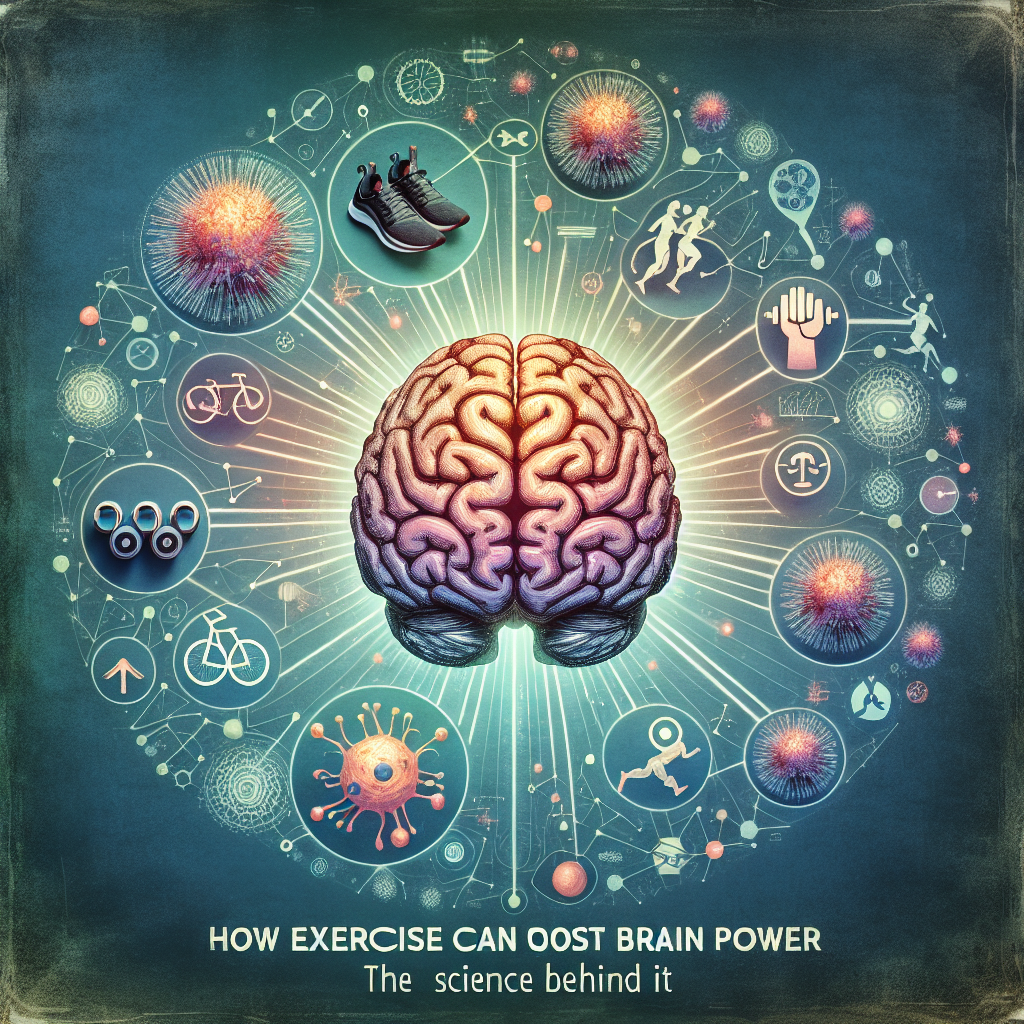When we think about exercise, our minds often drift to physical benefits like weight loss, increased strength, and improved endurance. However, what many people don’t realize is that exercise is also a powerful tool for enhancing brain function. In this article, we’ll explore the fascinating science behind how exercise can boost your brain power and improve your overall cognitive performance.
The Connection Between Body and Mind
The idea that physical activity can enhance brain power is not new. For years, researchers have explored how bodily movement affects cognitive performance. Studies show that regular exercise promotes neurogenesis, which is the process of forming new neurons in the brain. More neurons mean better brain function!
In addition, physical activity increases the flow of blood to the brain, which brings with it more oxygen and nutrients. This improved circulation is crucial for maintaining optimal brain health, similar to how it is for our muscles. The brain, after all, is an organ just like any other in the body, and it thrives on healthy blood flow!
The Science Behind It: Neurotransmitters and Endorphins
One of the primary ways exercise enhances brain function is through the release of neurotransmitters. These chemical messengers, such as serotonin, dopamine, and norepinephrine, play significant roles in regulating mood, motivation, and even memory. Exercise stimulates the production of these neurotransmitters, leading to an improved sense of well-being and enhanced cognitive abilities.
Moreover, engaging in physical activities releases endorphins, often known as the “feel-good hormones.” These hormones not only help alleviate stress and promote happiness but also improve focus and concentration. Imagine completing a workout and feeling invigorated—that boost in mood is directly linked to your brain becoming better at processing information!
Exercise and Brain Aging
As we age, our cognitive abilities naturally decline. However, research indicates that regular physical activity can slow this process significantly. Studies involving older adults have consistently shown that those who maintain an active lifestyle tend to score better on cognitive tests than their sedentary counterparts.
This protective effect is attributed to exercise’s ability to promote the growth of new neurons and strengthen existing neural connections. For older adults, incorporating exercises such as walking, swimming, or even yoga can significantly contribute to better cognitive health, making them sharper and more alert.
Types of Exercise That Boost Brain Power
Not all forms of exercise have the same impact on brain function. Here are a few key types to consider:
Aerobic Exercise
Aerobic activities like running, cycling, and swimming are particularly effective in enhancing cognitive function. These exercises increase heart rate and blood flow, resulting in better oxygen delivery to the brain. A consistent aerobic exercise routine has been linked to improvements in memory and problem-solving skills.
Strength Training
While many associate strength training with physical benefits, it also offers cognitive advantages. Lifting weights can enhance cognitive flexibility, which is crucial for adapting to new information and problem-solving. It’s also believed that strength training promotes the release of growth factors that support brain health.
Mind-Body Exercises
Activities like yoga and tai chi merge physical movement with mental focus. These exercises not only reduce stress but also enhance concentration, mindfulness, and emotional regulation. Engaging in mind-body exercises can lead to improved cognitive function, especially in terms of memory and attention.
How Much Exercise Do You Need?
So, how much physical activity is necessary to reap these brain-boosting benefits? The World Health Organization recommends at least 150 minutes of moderate-intensity aerobic exercise per week. This can be spread out over several days and includes activities like brisk walking or cycling.
In addition to aerobic workouts, incorporating strength training at least twice a week can further enrich mental performance. Finding a routine that works for you is essential, as consistency is key to experiencing the cognitive benefits of exercise.
Conclusion
Exercise is not just about building muscle or burning calories; it’s a powerful tool for enhancing brain function and mental health. Regular physical activity promotes the release of neurotransmitters, enhances blood flow to the brain, and even slows down cognitive decline associated with aging. Whether you prefer aerobic workouts, strength training, or mind-body exercises, there are numerous ways to integrate movement into your daily routine. By prioritizing physical activity, you are not just investing in your body but enriching your brain as well!
FAQs
1. Can a single workout improve my brain function immediately?
Yes! Even a single session of exercise can increase your mood and improve focus due to the release of neurotransmitters and endorphins.
2. Is there an optimal time of day to exercise for better brain function?
While optimal times can vary for each person, many individuals report heightened concentration and cognitive performance when they exercise in the morning or during their work breaks.
3. Do I need to join a gym to exercise regularly?
No! You can get a great workout at home using bodyweight exercises, going for a walk or run outside, or engaging in online workout classes.
4. Are there any specific exercises that are best for brain health?
A mix of aerobic exercises, strength training, and mind-body practices like yoga and tai chi can collectively support brain health effectively.
5. How long before I see cognitive improvements from exercise?
Many people notice an improvement in focus and mood after just a few weeks of consistent exercise. For significant cognitive benefits, longer durations may be necessary.





